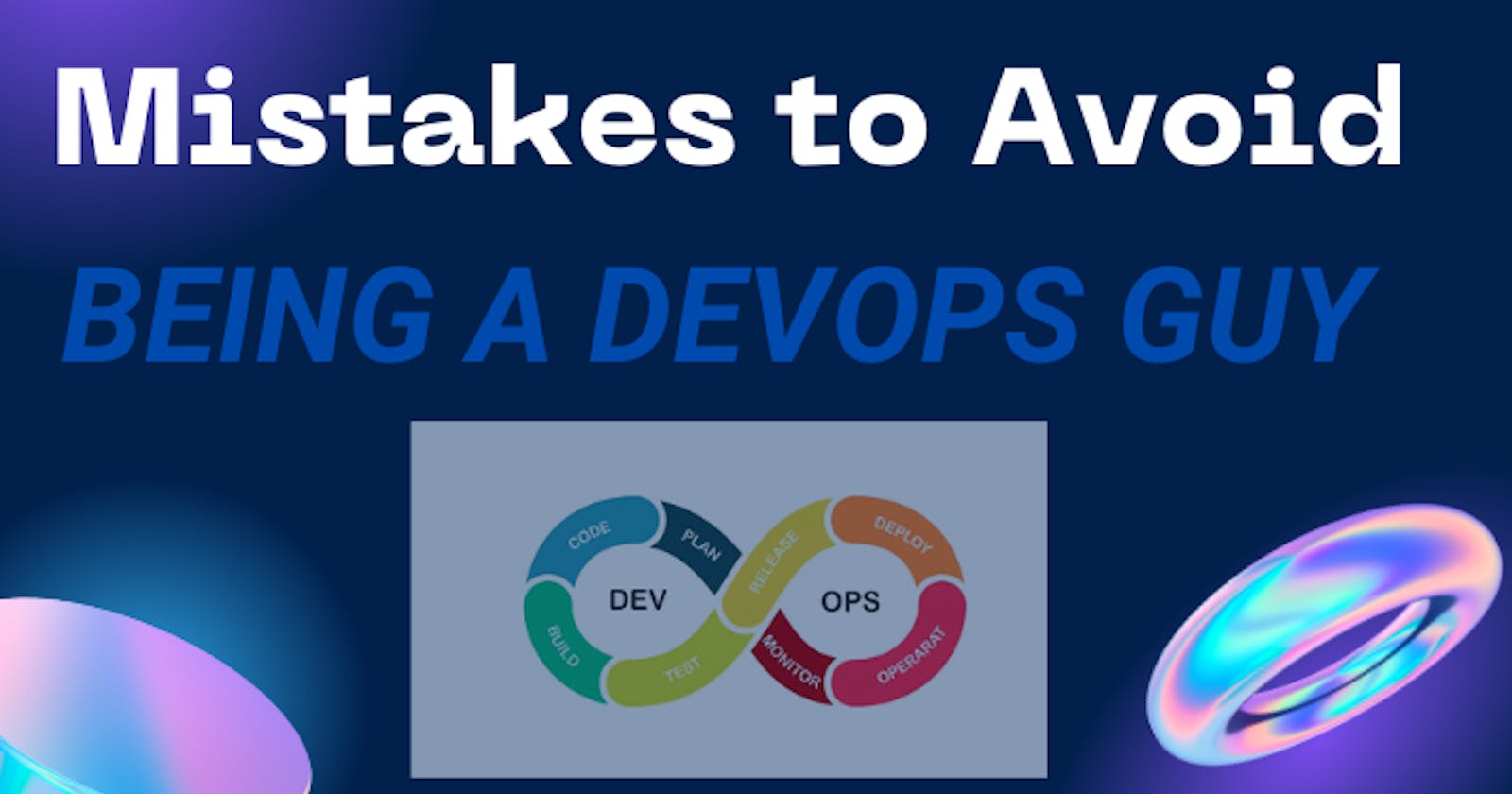Mastering the DevOps Journey: Key Mistakes to Avoid as a DevOps Engineer
A Comprehensive Guide to Enhance Efficiency, Collaboration, and Success in DevOps Practices
Table of contents
No headings in the article.
DevOps has revolutionized software development and deployment, bringing together development and operations teams to streamline processes and enhance collaboration. As a DevOps engineer, you play a crucial role in driving efficiency, productivity, and reliability. However, certain mistakes can hinder your effectiveness and impact the success of your projects. In this article, we will explore common mistakes to avoid as a DevOps engineer and provide strategies to overcome them.
Neglecting Security Practices: One of the gravest mistakes a DevOps engineer can make is overlooking security considerations. Security should be integrated into every aspect of your development and deployment processes. Failing to implement proper security measures can lead to vulnerabilities, data breaches, and compromised systems. Make sure to conduct regular security audits, implement robust access controls, and stay updated on the latest security best practices.
Lack of Communication and Collaboration: DevOps is all about fostering collaboration between teams. Failure to establish effective communication channels can lead to misalignment, delays, and misunderstandings. Encourage open and transparent communication among team members, utilizing tools such as chat platforms, video conferencing, and project management software. Foster a culture of shared responsibility and collaboration to ensure everyone is aligned towards a common goal.
Insufficient Testing and Quality Assurance: Rushing into production without comprehensive testing and quality assurance is a recipe for disaster. Lack of proper testing can result in the deployment of flawed code, performance issues, and unhappy end-users. Incorporate automated testing frameworks, continuous integration, and continuous deployment (CI/CD) pipelines into your workflows. Implement a robust testing strategy, including unit tests, integration tests, and end-to-end tests, to identify and fix issues early in the development lifecycle.
Failure to Automate: Automation lies at the core of DevOps. Failing to automate repetitive tasks, such as provisioning infrastructure, configuration management, and deployment processes, can lead to inefficiencies, errors, and increased manual effort. Embrace infrastructure-as-code (IaC) tools like Terraform or Ansible and adopt configuration management tools like Puppet or Chef to automate routine tasks. Automating processes frees up valuable time for innovation, reduces human error, and enhances scalability.
Overlooking Monitoring and Logging: Monitoring and logging are essential for identifying and resolving issues quickly. Neglecting to set up proper monitoring and logging mechanisms can result in undetected problems, poor performance, and prolonged downtime. Establish a robust monitoring strategy by utilizing tools like Prometheus, Grafana, or Splunk to track key performance metrics, identify bottlenecks, and proactively respond to anomalies. Invest in centralized logging solutions to enable comprehensive log analysis for troubleshooting and auditing purposes.
Lack of Continuous Learning: The technology landscape is constantly evolving, and as a DevOps engineer, it is crucial to stay updated with the latest trends, tools, and practices. Failing to invest in continuous learning can hinder your professional growth and limit your ability to tackle new challenges. Stay engaged with industry forums, attend conferences, participate in webinars, and explore online resources to expand your knowledge. Encourage a learning culture within your team by organizing knowledge-sharing sessions and promoting professional development opportunities.
Conclusion*: As a DevOps engineer, avoiding common mistakes is crucial to maintaining a smooth and efficient development and deployment process. By prioritizing security, promoting communication and collaboration, emphasizing testing and automation, leveraging monitoring and logging, and nurturing continuous learning, you can mitigate risks and contribute to the success of your projects. Remember that DevOps is not just a set of tools and processes but a mindset that embraces continuous improvement, innovation, and collaboration.*
